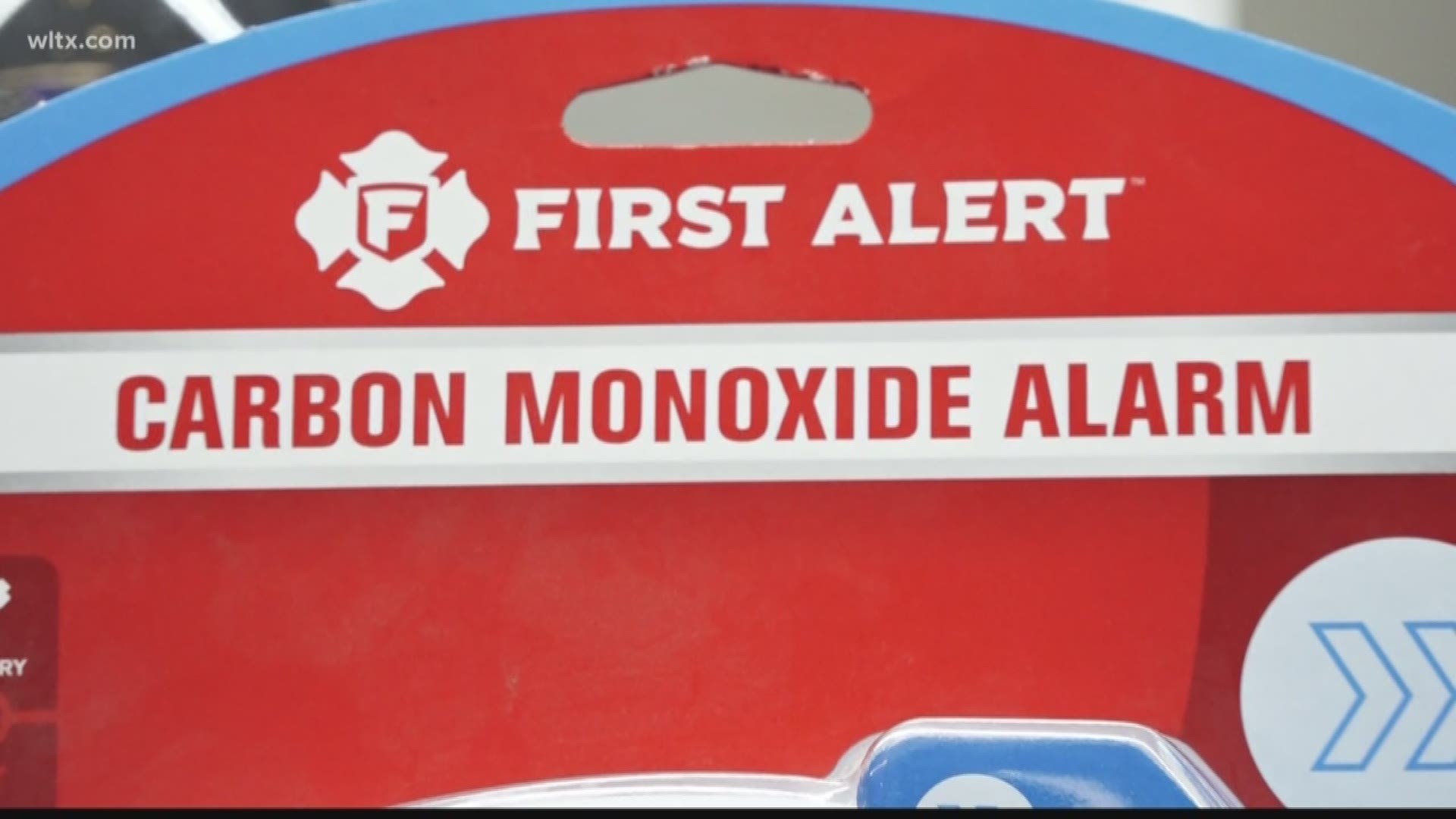COLUMBIA, South Carolina — Following the discovery of two bodies at the Allen Benedict Court apartment complex, questions surrounding natural gas and carbon monoxide poisoning surfaced.
Natural gas leaks give off an odor, where carbon monoxide (CO) is considered a "silent killer."
According to Center for Disease Control and Prevention, approximately 500 people die each year from accidental non-fire related CO poisoning.
News 19 looked into the laws surrounding CO detectors and found that detectors are required for dwellings with a fuel-fired appliance, as well as a dwelling with an attached garage. However, the law is unclear about detectors in apartments.
The apartments where the two bodies were found on Thursday morning did not have a CO detector.
When choosing to buy a CO detector, home inspectors suggest not getting a combination CO/Smoke alarm.
"The problem is carbon monoxide is heavy," says Tim Jacobson, inspector with Pinpoint Home Commercial Inspections. "So, it should be placed close to the ground. With the smoke detectors, you know where they go? The ceiling. So, if you have the combination carbon monoxide smoke detector, to me, it defeats the purpose."
While it's unclear if CO played a role in the deaths at the apartment complex, authorities are asking people to be aware of the dangers of carbon monoxide poisoning.
"I think everyone should have a carbon monoxide detector, especially when using any type of appliance using gas, fire place and stuff like that," says Chief Aubrey Jenkins, Columbia Fire Department. "You need a carbon monoxide detector."

